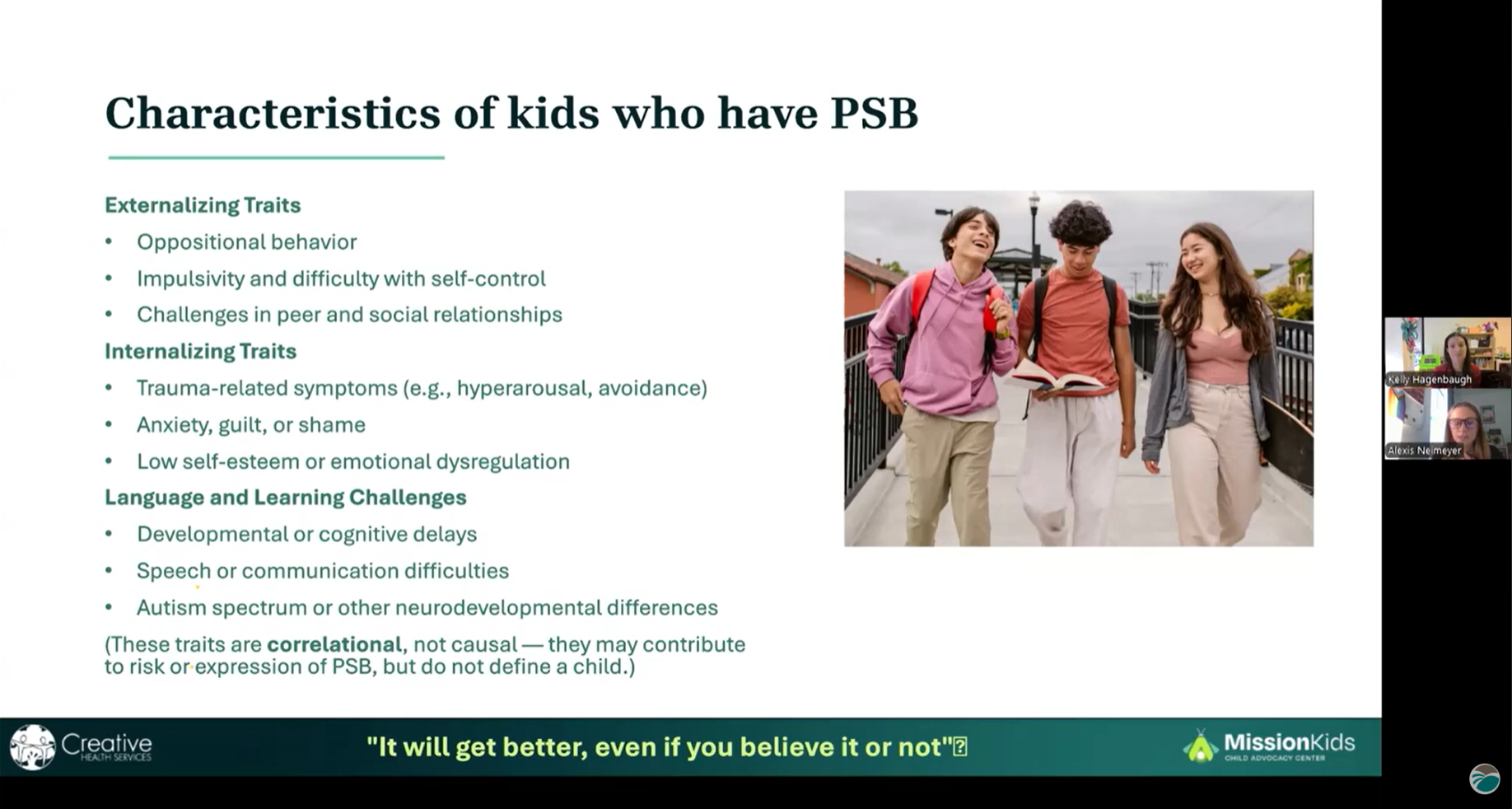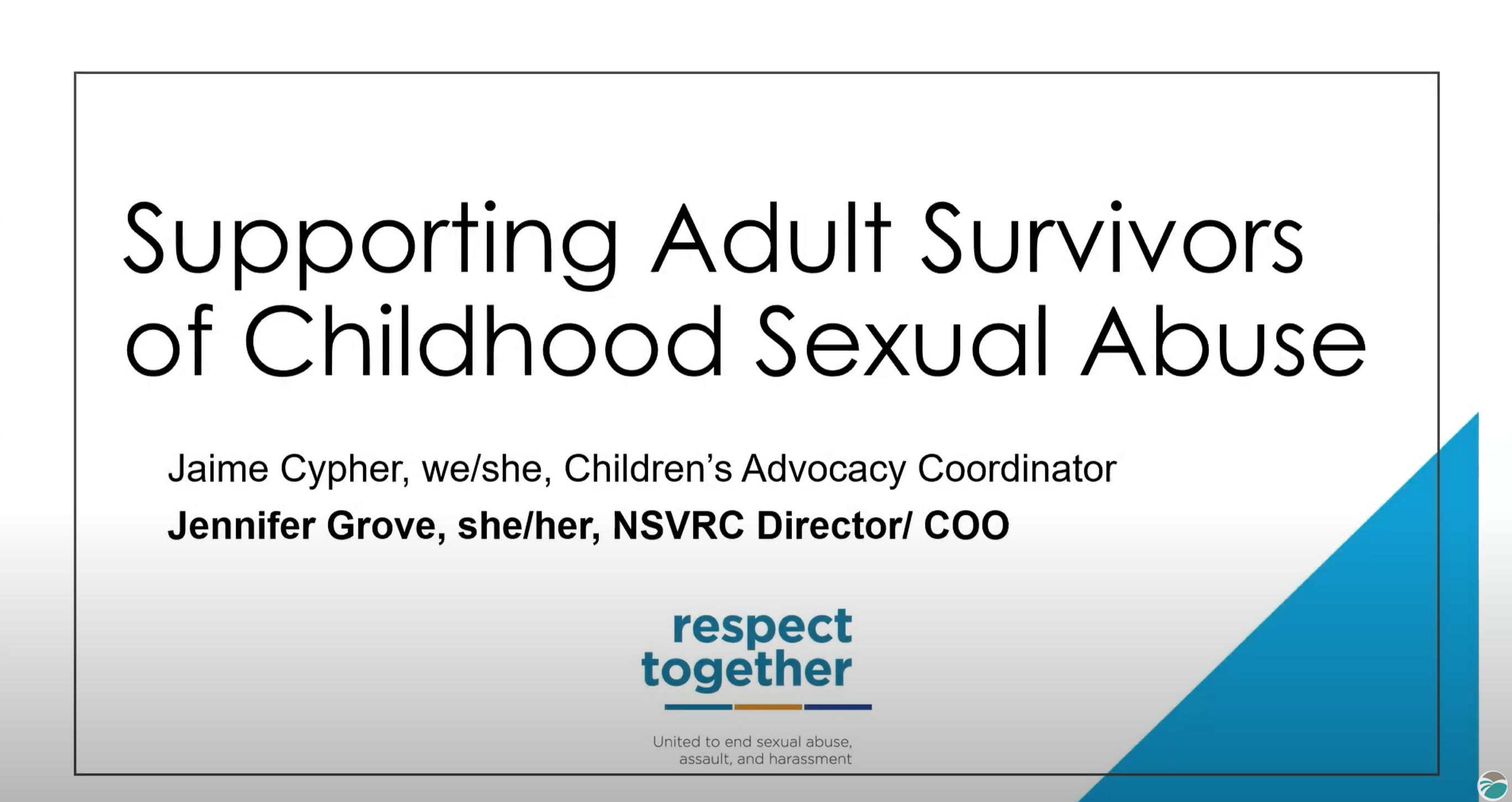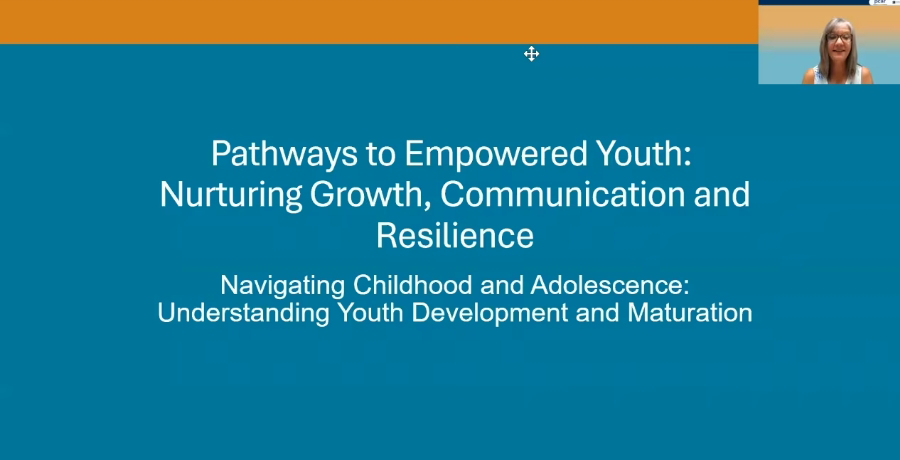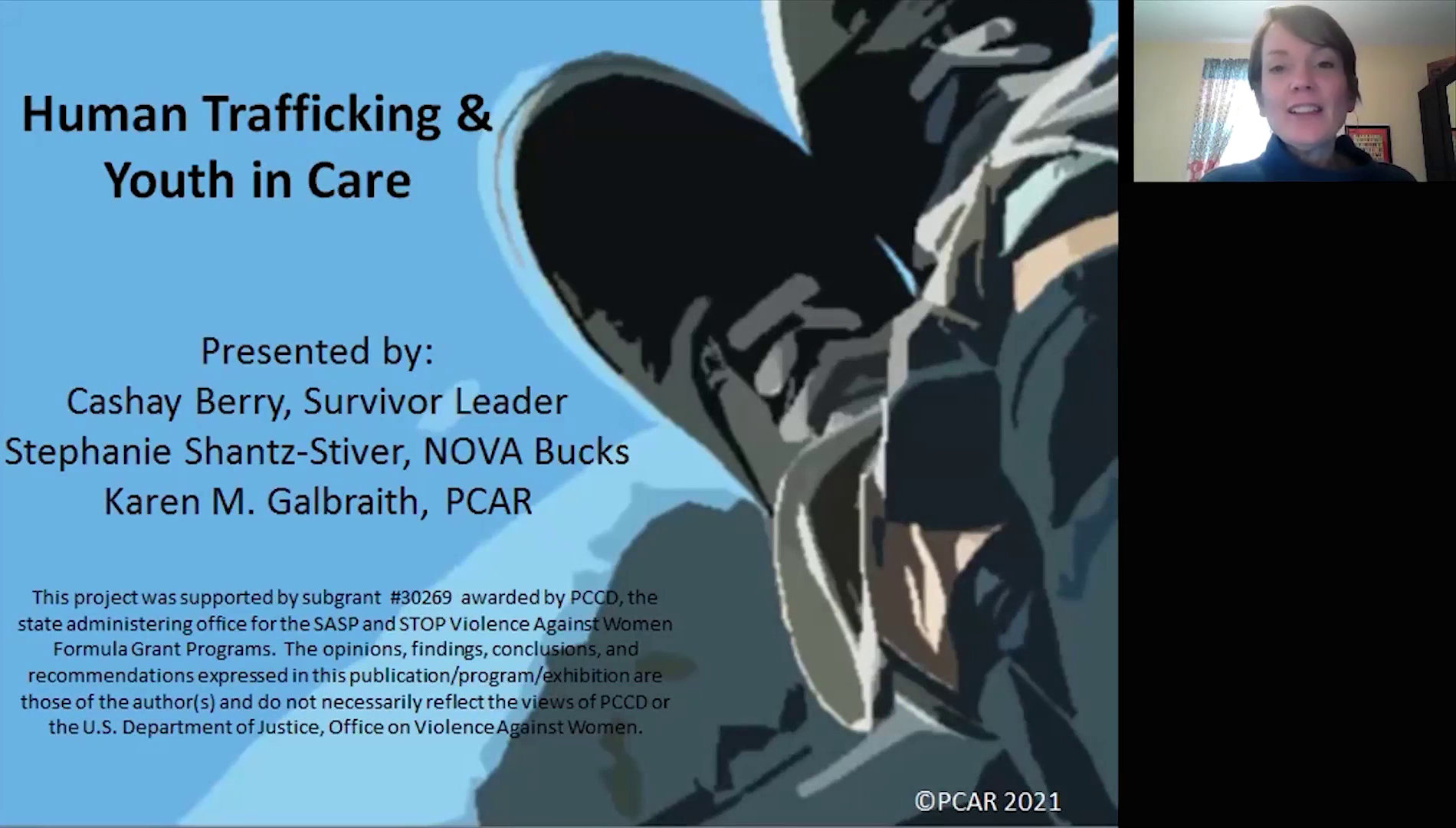
This two-part training series focuses on best practices for supporting youth that exhibit problematic sexual behavior. Learn more about each session in the individual session descriptions.
This publication was funded, in part, by the Department of Human Services. The opinions, findings, conclusions, and recommendations expressed in this publication/program/exhibition are those of the author(s) and do not necessarily reflect the views of DHS.

Childhood sexual abuse is pervasive: According to the 2023 PA Child Protective Services Report, there were 1749 substantiated reports of sexual abuse of children (over a third of all substantiated reports of abuse that year). Often, survivors of childhood sexual abuse (CSA) do not disclose or come forward about their abuse until they reach adulthood, if they disclose at all. It's important to learn how to support survivors of CSA into adulthood. By the end of this webinar, viewers will be able to:
1. Define child sexual abuse, grooming, and other important terms.
2. Understand the dynamics of childhood sexual abuse and how it affects survivors into adulthood.
3. Learn ways to support adult survivors, including navigating healthy relationships.
This publication was funded, in part, by the Department of Human Services. The opinions, findings, conclusions, and recommendations expressed in this publication/program/exhibition are those of the author(s) and do not necessarily reflect the views of DHS.

In a world brimming with challenges, fostering empowered youth is not just a goal but a necessity. This training series delves into the essential elements needed to support confident, capable individuals ready to navigate the complexities of life. This series consists of three sessions: Session 1 - Navigating Childhood and Adolescence: Understanding Youth Development and Maturation, Session 2 - Communicate and Connect: Strategies for Effective Engagement with Youth, and Session 3 - Best Practices for Supporting Youth, Understanding Trauma and Fostering Empowerment
This project/material is made possible with funding from the Pennsylvania Coalition to Advance Respect (PCAR), a division of Respect Together. Award Number CE-23-0006.

Youth who are involved
with the child welfare system are at increased risk of trafficking. This webinar identifies vulnerabilities
children and youth experience and identifies strategies for prevention and
intervention.
This project was
supported by subgrant No. 30269 awarded by PCCD, the state administering
office for the SASP and STOP Violence Against Women Formula Grant
Programs. The opinions, findings,
conclusions, and recommendations expressed in this
publication/program/exhibition are those of the author(s) and do not
necessarily reflect the views of PCCD or the U.S. Department of Justice,
Office on Violence Against Women.